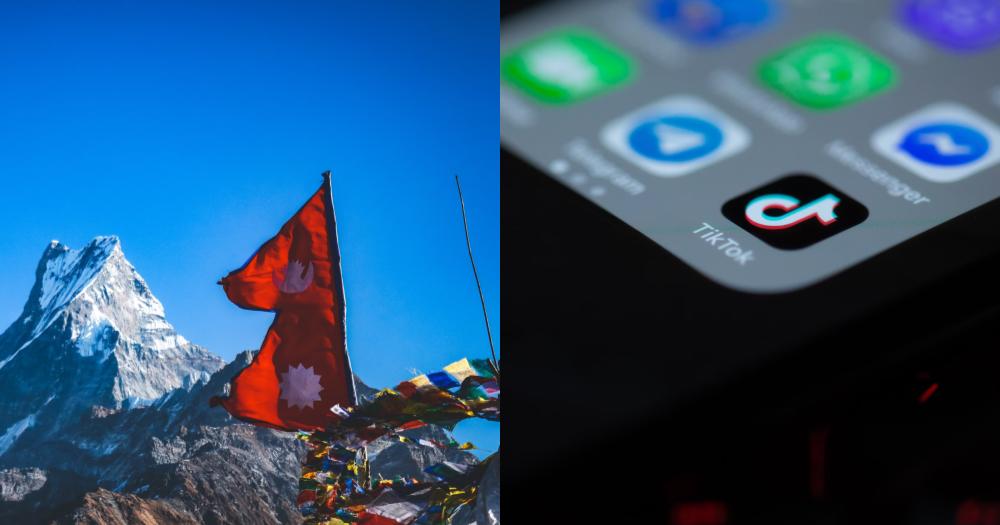Nepal has said on Nov. 13 that it will ban the popular social media app TikTok, and the ban would take place within 24 hours of the announcement.
Banhammer
The decision was announced by Minister of Communications and Information Technology, Rekha Sharma, who said that the decision had been made at a cabinet meeting.
The Washington Post quoted Sharma as saying that the government had decided to ban the social media app because it had been consistently used to share content that disturbed social harmony, disrupted family structures and Nepali social relations.
The Nepal Telecommunications Authority said that internet service providers would be required to block the app, and that TikTok was likely to cease operating in Nepal within 24 hours.
By the morning of Nov. 14, the Post was reporting that TikTok was no longer accessible in Nepal.
Morality and national security
While it was not revealed what the instigation factor for the ban was, it comes after Nepal revealed a set of guidelines for social media companies on Nov. 10.
The guidelines included requirements for social media companies to set up offices in Nepal, as well as a 19-point not-to-do list with strictures against fake identification and posting content that spread hatred amongst any "people from any particular group", according to a report by the Kathmandu Post.
The social media app, owned by Chinese company Bytedance, is no stranger to increased regulations or attempts to ban it.
It is already banned in India, with the European Union and Australia banning government employees from using the app.
In India, TikTok is actually undergoing its second ban, the first time due to "morality issues", according to Al Jazeera.
However, the second time India banned TikTok it did so for similar reasons to the EU's and Australia's objections, for reasons of national security.
TikTok's CEO Chew Shou Zi faced a grilling by members of the United States Congress in March 2023, and is currently contesting a ban from the U.S. state of Montana.
Regulation, not restriction
Meanwhile, political actors in Nepal have complained that the ban has less to do with morality concerns, and more to do with control of social media.
The former Foreign Minister Pradeep Gyawali, was quoted by Al Jazeera as saying that while there was objectionable material on social media, the solution was regulation, not banning.
The leader of the Nepali Congress party, Gagan Thapa, said that the government's intent was to "stifle freedom of expression" and that while regulation was needed to avoid abuse of social media, shutting it down in the name of regulation was "completely wrong".
टिकटक बन्द गर्ने निर्णय गरेर सरकार उल्टो कदम हिँडेको छ।
सामाजिक सञ्जालको दुरुपयोग गर्नेलाई निरुत्साहित गर्न नियमन आवश्यक छ तर सामाजिक सञ्जाललाई नियमन गर्ने नाममा बन्द गरिनु सरासर गलत हो। यो एउटा सामाजिक सञ्जाल बन्द गर्ने नगर्ने भन्दा पनि यो सरकारको नियतको विषय हो। यसमा सरकारको…
— Gagan Thapa (@thapagk) November 13, 2023
Related Stories
Top image Samrat Khadka/Unsplash & Solen Feyissa/Unsplash

If you like what you read, follow us on Facebook, Instagram, Twitter and Telegram to get the latest updates.



